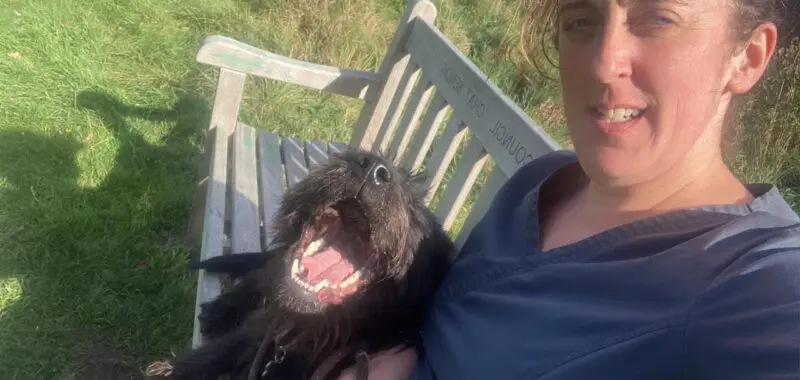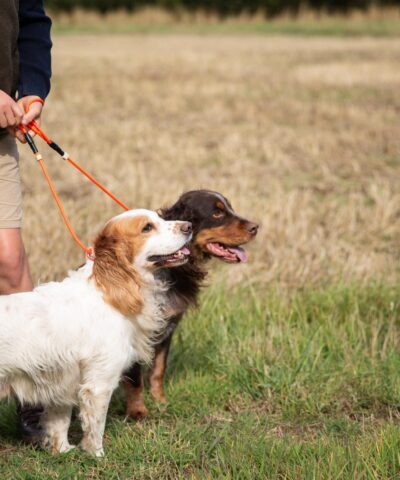We spoke to Dr Jo Travers, a vet who also runs an acupuncture service for dogs.
How did you get into acupuncture for dogs?
I qualified as a vet 12 years ago and had always been interested in acupuncture, but I was busy and never quite found the time to explore it. Once I saw the effects of a treatment by a colleague on my very suspicious border terrier, I realised that this was definitely a skill I wanted to add to my veterinary CV. Last year, I took myself on a training course and can now provide a home visit service to dogs and cats in chronic pain.
So, what is acupuncture for dogs in a nutshell, and what does it help with?

The majority of acupuncture patients are come to me due to chronic pain. The research is still evolving but it can be very helpful for hip dysplasia, and any arthritic conditions. It works by releasing endorphins (feel good hormones) which in turn reduces the effect of pain perception in the brain, and improve mood, movement and general wellbeing.
Many of the dogs I see are older. As they age, long-term use of painkillers isn’t always ideal as it can affect their kidneys or digestion so acupuncture offers a more holistic alternative and additional option for anyone seeking to improve their dogs quality of life.
People associate acupuncture with needles. How do dogs react?
The needles we use are incredibly fine, barely thicker than a human hair, so most dogs don’t even react when they’re placed. We keep them still just while inserting the needles, but after that, they’re free to move around. Some even fall asleep during treatment.
At their first appointment, dogs are often curious but treats help them associate the experience with something positive. By their second or third session, most dogs know it helps them feel better and they’re very relaxed.
What do you like most about doing it?
I love that acupuncture appointments give you time to really focus on the individual dog. Each session lasts about an hour. It’s incredibly rewarding to see the difference it can make. Some dogs feel the benefits straight away, while others take a few sessions.
What are your tips for keeping dogs healthy, especially for their joints?
Feed a good-quality diet. Feed a diet with good quality protein which supports muscle strength and joint health.
Do the right amount of exercise but not too much. A consistent, daily routine of similar length walks each day is better than an occasional long hike. Overdoing it can stress the joints, especially if they’re not used to it.
Know your breed. For example, Labradors are prone to hip and elbow problems, so joint supplements and early proactive care can really help.
Learn to spot pain. Dogs often hide pain well—they’ll still go for walks even when uncomfortable. Watch for signs like slowing down, stopping to sniff more, stiffness after resting or standing awkwardly. It can be hard to notice when you see your pet all the time, this is why assessment with your primary vet is important. Arthritis is not just a sign of old age.
Website: Dr JA Travers – Veterinary Acupuncture
Facebook page: Dr JA Travers – Veterinary Acupuncture Facebook page





